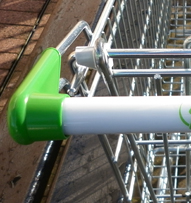A food fraud study – revealed exclusively to Which? – found that a quarter of 78 samples of dried oregano bought from a range of retailers contained ingredients other than oregano. These ingredients, most commonly olive and myrtle leaves, were found to make up between 30pc and 70pc of the product. So in some cases, less than a third was actually oregano.
The snapshot investigation used oregano samples bought from a range of shops in the UK and Ireland and from online retailers, and was led by food fraud academic Professor Chris Elliott. The test, using mass spectrometry which identifies compounds by their atomic composition, was conducted by Elliott, the author of the independent review into food crime commissioned by the Coalition Government in the wake of the horsemeat scandal.
Prof Elliott said: ‘Clearly we have identified a major problem and it may well reflect issues with other herbs and spices that enter the British Isles through complex supply chains. Much better controls are needed to protect the consumer from purchasing heavily contaminated products.’
The Seasoning and Spice Association (SSA) said that its members take matters of food authenticity very seriously. The SSA said that to ensure the quality and integrity of products, SSA members have in place process controls to protect themselves and ultimately their customers from fraud. These controls are based on well-established good manufacturing practices (GMPs) and sound food safety management systems (FSMS). Furthermore SSA members are committed to purchase all their products from approved suppliers in order to ensure full traceability of their products at all stages of production, processing and distribution. Useful current methodologies to identify the presence of undeclared substances can include microscopy, organoleptic and analytical testing of volatile oil content.
The SSA said: “The majority of oregano sold in the UK is authentic, as this survey indicates. That some samples have been found to contain large quantities of bulking substances instead of oregano is unacceptable and undermines the efforts of many suppliers to ensure the integrity of this supply chain. We are working with the FSA and retailers to ensure that the most up to date knowledge and good manufacturing practices are shared more widely to ensure more companies can identify and manage the risk of food fraud more effectively.”
Chris Elliott, Professor of Food Safety and Director of the Institute for Global Food Security at Queen’s University, Belfast, tweeted later that ‘judging from my inbox I think oregano fraud happens worldwide’.










